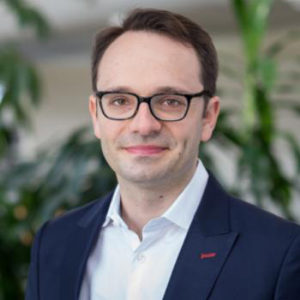T1: AMBER – Advanced Model Based Engineering Resource
Presenter: Phillip Sharer, Argonne National Laboratory, USA
Presenter: Sylvain Pagerit, Argonne National Laboratory, USA
Presenter: Dominik Karbowski, Argonne National Laboratory, USA
Virtual Program Update: Live Event!
The AMBER & Autonomie workshop will be an interactive stream via Microsoft Teams on Monday October 25, 2021 from:
– 8AM to 11AM CDT, USA
– 3PM to 6PM DST, Europe
For this workshop, you can follow along with a free evaluation version of AMBER & Autonomie.
To get your version, please send the following information to amber-evaluation@anl.gov:
– First and Last Name
– Institution Name and Country
– Professional or University email
Prerequisite: your computer must have Matlab to run AMBER with Autonomie. The Simulink and Stateflow toolboxes are also required to build models and run some of the simulations.
See virtual conference for link.
Abstract: Most of today’s R&D requires flexible multi-vehicle simulations involving CAVs, ADAS, regional transportation, large-scale and others. Those simulation workflows are getting more and more difficult to manage, and require to constantly set up and switch between multiple tools. The resulting complex workflows get difficult to standardize and distribute. AMBER was created to provide a platform of completely open and customizable workflows, and enables engineers and researchers to retake control of their MBSE workflows.
The attendees will be provided with a free version of AMBER using compiled vehicles for the hands on part of the tutorial. Matlab must be installed on the participant computers to run the simulations.
Objectives:
- Introduce AMBER workflows.
- Load and run existing vehicle models, from conventional to hybrid to electric drives: HEV, PHEV, and EVs
- Select and simulate vehicles on drive cycles, performance tests and worldwide certification procedures
- Analyze energy consumption and performance results as well as detailed component operating conditions
- Create new vehicle models by:
-
- Modifying existing models, files and parameters. Demo only
- Importing user models and calibration files. Demo only
- Importing user vehicle architectures. Demo only
- Run a large number of vehicles with different calibration sets
- Batch run vehicles using API for advanced use cases
- Explore different High Performance Computing options: MPI, distributed computing, compilation. Demo only
- Demonstrate new Smart Mobility Workflows which run vehicles on trips generated from an agent based transportation model, e.g.: POLARIS, map trips, e.g.: HERE, or speed logs. Demo only
- Generate naturalistic drive cycles for energy simulation for real-world routes defined by waypoints, using SVTRIP. Demo only.
- Simulation of multi-vehicle scenarios with connected and automated vehicles, using RoadRunner. Demo only
 Phillip Sharer Bio: Phillip Sharer is the team leader for the AMBER/Autonomie Systems Simulation Architecture. Before that, he was an Autonomie developer and co-author of PSAT. He has been a Research Engineer at Argonne for 22 years. He received a Master of Science in Engineering from Purdue University Calumet in 2002.
Phillip Sharer Bio: Phillip Sharer is the team leader for the AMBER/Autonomie Systems Simulation Architecture. Before that, he was an Autonomie developer and co-author of PSAT. He has been a Research Engineer at Argonne for 22 years. He received a Master of Science in Engineering from Purdue University Calumet in 2002.
 Sylvain Pagerit Bio: Sylvain Pagerit is a senior software & systems engineer in the Vehicle Modeling and Simulation group at Argonne National Laboratory. He received a Master of Science in Automatics, Control Systems and Industrial Engineering from the Ecole des Mines de Nantes, France, in 2000, as well as a Master of Science in Electrical and Computer Engineering from the Georgia Institute of Technology, Atlanta, in 2001. At Argonne, he focuses his work on the development of system simulation tools, originally for PSAT and Autonomie and now AMBER, as well as managing the group development environment. For the last 20 years, he also setup and manage High Performance Computer (HPC) clusters and design tools to facilitate and optimize system simulations on HPCs. He received a patent and several awards for his work on Autonomie and PSAT
Sylvain Pagerit Bio: Sylvain Pagerit is a senior software & systems engineer in the Vehicle Modeling and Simulation group at Argonne National Laboratory. He received a Master of Science in Automatics, Control Systems and Industrial Engineering from the Ecole des Mines de Nantes, France, in 2000, as well as a Master of Science in Electrical and Computer Engineering from the Georgia Institute of Technology, Atlanta, in 2001. At Argonne, he focuses his work on the development of system simulation tools, originally for PSAT and Autonomie and now AMBER, as well as managing the group development environment. For the last 20 years, he also setup and manage High Performance Computer (HPC) clusters and design tools to facilitate and optimize system simulations on HPCs. He received a patent and several awards for his work on Autonomie and PSAT
 Dominik Karbowski Bio:
Dominik Karbowski Bio:
Dominik Karbowski is the Technical Manager of Intelligent Eco-Mobility, within the Vehicle and Mobility Simulation Group. He leads Argonne’s effort to improve vehicle energy efficiency through control, data science, connectivity and automation, and using advanced systems simulation research.
His research interests include:
Energy-focused controls for Connected and Automated Vehicles (CAVs): make CAVs save energy by better control of their speed (eco-driving) and their powertrain using information received from sensors and V2X communications.
Intelligent energy management and powertrain control: optimize the powertrain operations and the energy flows within the vehicle by using prediction of future driving conditions.
Driver behavior: model future vehicle speed using a combination of machine-learning, stochastic processes and optimal control theory.
Real-world driving data analytics: make sense of large-scale recordings of real-world driving and use it to create better models of vehicles, controls and drivers.
Advanced powertrains: electric vehicles, hybridelectric vehicles, plug-in hybrids, etc.
Aircraft systems optimization: finding the optimal tradeoffs between energy consumption, range, endurance, payload, and mission performance, for planes and Unmanned Aerial Vehicles.
Dominik is a major developer of simulation tools for transportation energy-efficient vehicle research. Dominik has made significant contributions to Autonomie, Argonne’s road vehicle energy consumption tool, and has invented several software to support his research:
SVTRIP: Stochastic vehicle trip profile generation.
RoadRunner: Simulation of powertrain and longitudinal dynamics for energy-efficient CAV research. Aeronomie: Dynamic aircraft simulation for energy and mission performance.
Dominik holds a master of science in engineering from Mines ParisTech (France).
